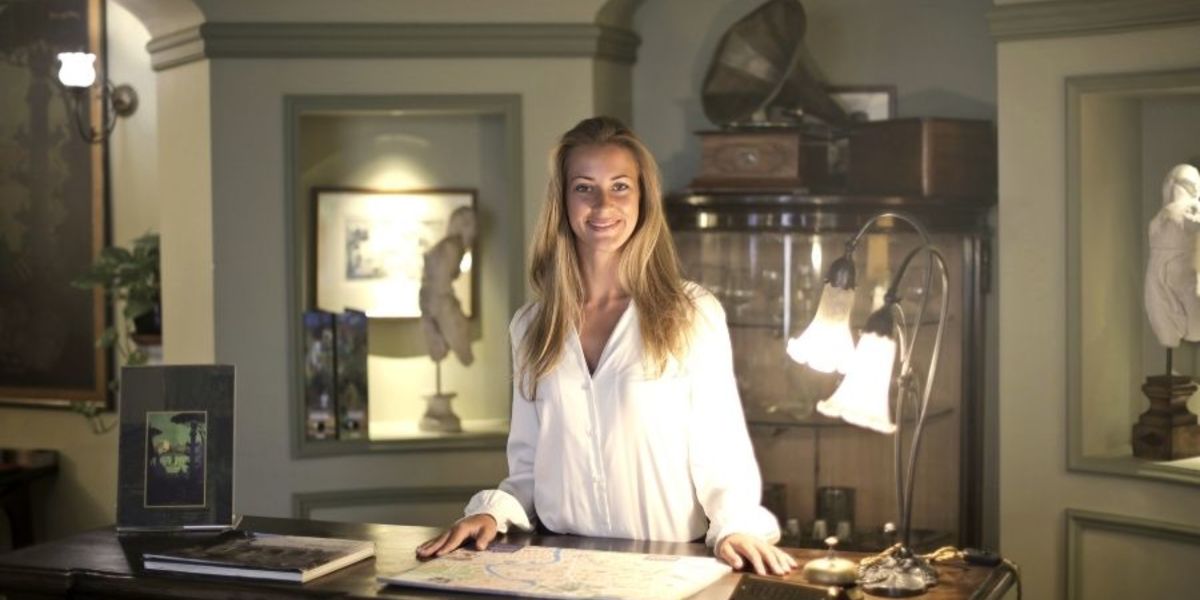
The future of hospitality and tourism: Building back better with women
That women in the hospitality and tourism sector were affected disproportionately by the COVID-19 pandemic was expected and accepted. The Bureau of Labor Statistics reported that “In January 2020 there were 8,979,000 women employees in leisure and hospitality but that number was down to 6,939,000 in January 2021.” Women experienced 53.4 percent of job losses in the hospitality and tourism sector. This was not a pocket-phenomenon, but a trend witnessed globally.
In 2021, with a 23 percent dip in employment, the dire circumstances of the industry that, in 2019, made a contribution of $2.9 trillion to the global GDP demand a deeper look. As the hospitality and tourism sector strives to build back post pandemic, let’s not lose sight of the future that needs building - especially for women.
A disproportionate disadvantage
Despite the fact that women make up a large majority (52%) of the hospitality workforce, the odds seem to be stacked high against them with a high representation in the sector that is a little skewed. Women working in this sector are not necessarily handed or allowed to grow in the best of roles. So, even with their larger numbers, behind the glitz and glamour that shroud the business of leisure and luxury, research has shown that many women tend to hold roles that are often referred to as being low paid, physically exhausting, exploitative with limited training and career opportunities.
Women also face the disadvantage of being in roles that could easily be automated, as the industry speeds up the adoption of robotics and AI, explaining partially why a disproportionate percentage of women have been faced with unemployment.

Female employment in tourism and hospitality is both vertically and horizontally segregated, Vertically, in tourism and hospitality businesses, women often hold lower levels of occupations with fewer opportunities with upward mobility. On the other hand, horizontally, while women usually work as receptionists, waitresses, room attendants, cleaners, travel agency salespersons, with few options to explore senior management.
Moreover, this economic crisis comes at a time when a big chunk of institutional care and support that is usually provided by governments across the world is being withdrawn. Without these in place, being primary caregivers in most families, women are at a severe disadvantage. Child-care responsibilities, like most things in our society, are not shared equally between the genders. How does the industry gauge its steps towards building back better when an entire gender is systematically marginalised?
Hospitality’s Gender Pay Gap Problem
Despite efforts in recent years to close the gender pay gap, a recent survey by PWC WiH2020 (Women in Hospitality) highlights that if it continues decreasing at its current rate of 0.4%, it will still take over 20 years before pay equality is reached. Now just let that sink in, a woman in this industry will only be able to reach pay parity with their male counterparts in the next 20 years or so. Not a very appealing statistic for a young female entrant into the industry.
For instance, the gender gap is a widespread phenomenon in the UK, where women are less paid than men almost in all tourism jobs. As an example, in the UK, on average, female hotel managers earn 17% less than their male counterparts, and female leisure and theme park attendants earn 30% less than their male counterparts.

As a labor-intensive industry, tourism and hospitality offers significantly more employment opportunities to both men and women, but especially to women. The current crisis has taken away good paying jobs for women in these industries both in the developed and developing world.
As the hospitality and tourism slowly reopens, addressing these issues should be high on the agenda.
What are we building back better?
What is it that we are truly aiming at building back? Considering the gender-specific segmentation of jobs and career pathing that had been prevalent for decades in the sector, should the focus just be on building better instead? Building a future that is inclusive and sustainable, one that provides equal opportunities for growth to women as well - maybe that should be the agenda - building forward instead of building back.
The hospitality and tourism industry has seen incredible growth in numbers over the last decade and even with how much it has evolved in terms of becoming more digital, more consumer-friendly and a lot more brand-aware, what has not changed much is the position of women within the employment ecosystem. Yes, there are women who have risen to the ranks of leaders in successful behemoths of the industry such as Jane Sun of Ctrip and there are women entrepreneurs who have established and grown their own ventures, but they don’t make up the majority unfortunately.
Should we build back a structure that ensures that women stick to house-keeping and frontline duties and move no further or beyond? Should we make no use of this crisis at all and simply go back to how things were? Would that be a fair vision to fight for? Can we truly move towards recovery when so many are battling to survive the reality of a lopsided system? How can the crisis of the pandemic that shook up industries around the world be used to create positive change as we recover together?
A hospitable future
It is time to set in motion not just a plan for recovery but also a clear set of tangible action points to break the mould and value women for all the potential they hold. As the world comes back to work and seeks ways to restore “normalcy”, travel and hospitality would see a marked growth as well.
While companies would need to adhere to a distinctly new set of rules when it comes to the health and safety of their customers, the playbook for employee security needs to change as well.
A gender-neutral future is what needs conscious construction - a safe space where women can also hope to secure better jobs and to grow in them. Responsible recovery and the vision for a future that takes into consideration diverse individual realities are the pillars we need to support the architecture of a new and improved hospitality and tourism industry.
The fundamentals of inclusion necessitate the breaking of gender bias and the opening up of opportunities on a level playing field. Employers need to be aware of the fact that their diversity and inclusion decisions directly reflect on their brands. This in turn, crafts customer perception and loyalty. Without encouraging a workforce that is inherently inclusive and equal-opportunity-centric, not only do these companies in the hospitality and tourism sector stand to lose out on talent and potential, but also on their brand voice.
Blogs for you
Half the Sky's mission is to supply the tools that can give every woman the ability to build a successful career and be fully prepared for the future of work. So, that they can lead a healthy, prosperous and more balanced/blended lifestyle of their choosing. By building your confidence, you’re setting foundations to empower yourself and your career. The world is your oyster, and it starts with you.
Enjoyed this article let us know your thoughts in the comments below:
About half the sky
half the sky (HTS) is a career platform for women connecting you to career opportunities at companies that care. Providing you with information, tips and strategies to navigate the rapidly changing workplace.
Sign up to get career tips and job alerts directly to your inbox! Join us to shape the future of women at work together!



